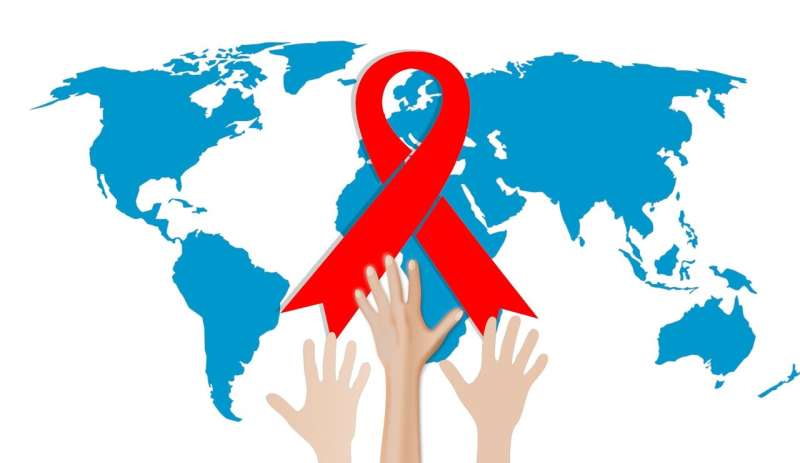Increased support needed for a coordinated global HIV and COVID-19 response

Leading infectious disease researchers called for a coordinated response to HIV and COVID-19 globally, building on the successes of key donor programs such as the U.S. President's Emergency Plan for AIDS Relief (PEPFAR) program and Global Fund to Fight AIDS, TB and Malaria (GFATM) in a new perspective piece published in The Journal of the American Medical Association.
"With intersecting pandemics, we must reevaluate our approach in responding to HIV and COVID-19 through two major components: global immunization and enhanced services to people living with and at risk for exposure to HIV," said Dr. Larry Corey, professor in the Vaccine and Infectious Disease Division at Fred Hutchinson Cancer Research Center. "Through the key priorities shared in this paper, we can be better equipped to handle what the future has in store for these pandemics on a global scale."
The emergence of the SARS-CoV-2 omicron variant is a stark illustration of the intersecting COVID-19 and HIV pandemics, highlighting the relationship and detrimental effects each of these infectious diseases has on the other. The authors cite considerable data indicating that immunocompromised persons with persistent COVID-19 could be the origin of SARS-CoV-2 variants of concern (VOC). Sub-Saharan Africa, with its high proportion of persons with HIV infection often undiagnosed and less than optimally treated, has the highest proportion of persons with immunosuppression.
Countries with high HIV infection rates also tend to have low vaccination coverage for COVID-19. The authors advocate for programs to integrate and enhance diagnosis, vaccination and clinical management and research for persons with HIV and COVID-19 and their families and communities.
The piece shares three key priorities to help expand efforts to respond to the pandemics.
- Link HIV diagnosis and care services with COVID-19 vaccination and treatment for all people living with HIV.
- Countries with high HIV incidence must be better resourced to identify people more efficiently with HIV and ensure easy and well-supported access to and monitoring of antiretroviral therapy (ART).
- People living with HIV, especially those with low CD4 counts, must be monitored virologically for persistent COVID-19 infection irrespective of symptoms.
The PEPFAR, which has been built with African and U.S. partners, combined with the GFATM is key for rolling out these efforts and must be adequately resourced to respond quickly to the intersecting epidemics. The current approach is costing countries their economies and reversing the progress toward sustainable development goals.
In addition, the global community cannot expect to achieve pandemic control while the continent of Africa is left unprotected from COVID-19 due to inadequate access to vaccines and therapeutics, which omicron has emphasized. Current approaches by both Western and African governments must change, and public health responses must be adequately resourced by donors or other sources and be informed by community voices and perspectives. African governments also need to increase vaccine coverage, possibly through mandates and resources to health services, to reduce the economic and public health burden of these intersecting pandemics on their countries and societies.
More information: Lawrence Corey et al, Expanding Efforts and Support to Respond to the HIV and COVID-19 Intersecting Pandemics, JAMA (2022). DOI: 10.1001/jama.2022.3517















